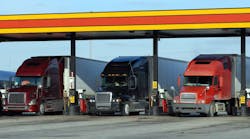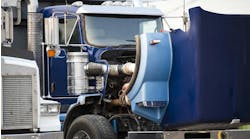I was looking at some old blogs I had written and came across one that talked about what fleets can do to mitigate the impact of high fuel prices. It was written in 2018 and at that time, diesel was $3.15 a gallon. For the week of Nov. 22, 2022, the average price of diesel was $5.23 a gallon, according to the U.S. Energy Information Administration.
I don’t think back in 2018 we could have imagined that diesel would get much higher, and yet it has.
So, this seems like a good time to revisit some of the things I talked about back in 2018. One of the things I mentioned was how the way a truck is spec’d contributes to its fuel efficiency. Since new truck production is constrained, I don’t think fleets are having much say in vehicle specs.
Most of them are probably taking delivery of trucks that are anywhere remotely close to what they want. However, the good news is that trucks coming off the production line today are much more aerodynamic than they used to be and that certainly helps with fuel efficiency.
See also: Performance-based driver incentives help fleet save $2M in fuel costs
However, there are still things fleets can add to trucks to help get more from that $5.31 gallon of diesel. Additional aerodynamic devices on the tractor and the trailer are good investments, as are low rolling resistance tires, tire pressure monitoring/inflation systems, and idle reduction devices. Fleets should even consider smaller changes like wheel covers because, at today’s fuel prices, even a tenth of a mile more from a gallon of diesel leads to significant savings.
There are also things like adjusting engine parameters for fuel economy and working with drivers so that they drive in a more fuel-efficient manner, which means using cruise control and avoiding hard braking.
Now may also be a good time to look at your routing. Are you using the most efficient routes? Given changes to trucking with more emphasis on regional haul and last-mile delivery, it is possible that routes you ran in the past might no longer be the best for your current operation.
I would be remiss if I did not talk about maintenance. Trucks need to be maintained on a regular basis in order to operate as they are designed to. Things like clogged filters, water in the air system, and damaged aerodynamic devices—to name a few—can all cause trucks to use more fuel. Make sure all of your trucks are getting brought in for their regular maintenance service and that technicians are doing maintenance inspections whenever a truck is brought in for service.
No one knows how long fuel prices will remain high, but even if they come down, getting the best fuel economy possible makes smart business sense. Every gallon of fuel saved goes right to the bottom line.
Jane Clark is vice president of member services for NationaLease. In this position, she is focused on managing the member services operation as well as working to strengthen member relationships, reduce member costs, and improve collaboration within the NationaLease supporting groups. Prior to joining NationaLease, Clark served as area vice president for Randstad, one of the nation’s largest recruitment agencies, and before that, she served in management posts with QPS Cos., Pro Staff, and Manpower Inc.



